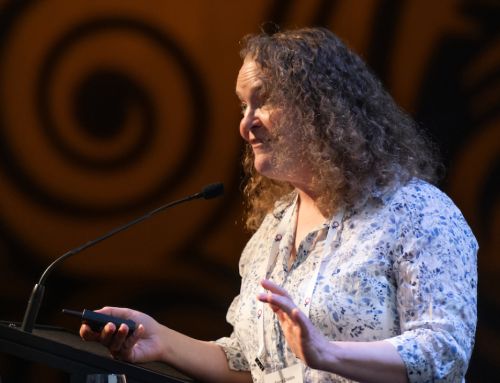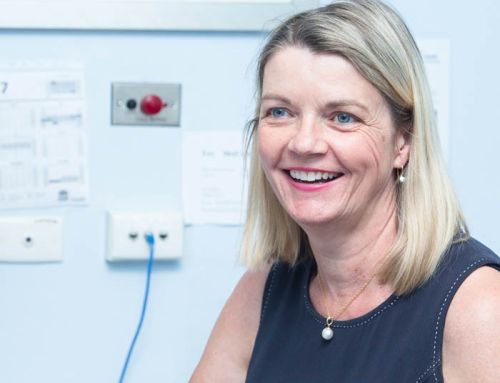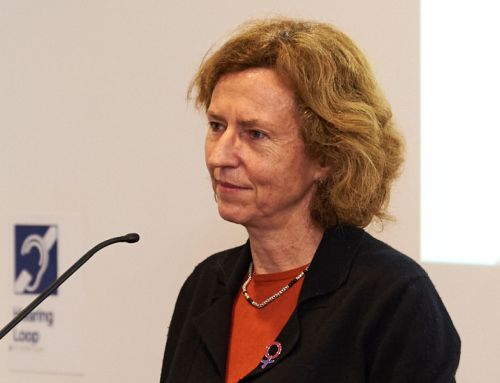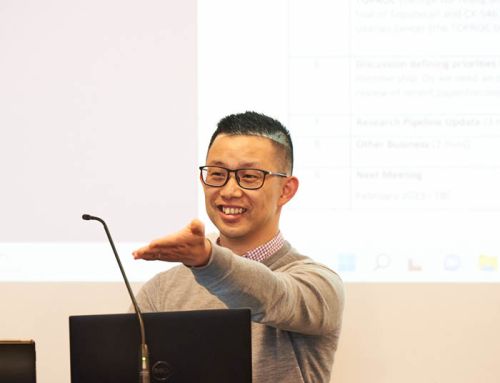The COVID-19 pandemic has presented countless challenges for the healthcare sector, including the ongoing provision of clinical trials. Medical Oncologist and ANZGOG member Dr Allison Black explains her experience with telehealth clinical trials. As part of Cervical Cancer Awareness week, Natalia shares her story of being a participant in a cervical cancer clinical trial.
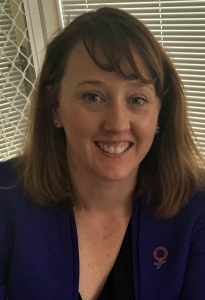
Dr. Allison Black, ANZGOG member and Medical Oncologist at the Royal Hobart Hospital
When the COVID-19 pandemic began in Australia, Natalia’s cervical cancer clinical trial was indefinitely placed on hold. “It was terrifying to think about how long I might have to go without access to the treatment. When I found out that I would be able to resume treatment on the trial in Hobart I was extremely relieved.”
Interstate travel restrictions have presented challenges to the continued efforts of Hobart’s oncologists. Dr Allison Black, a medical oncologist at the Royal Hobart Hospital saw this as a major obstacle for the ongoing treatment of patients with cancer. “In regional centres such as Hobart, although we have a large, vibrant trials centre, it is not possible to offer trials for all rare tumours types. Therefore, our patients are required to travel interstate the access trials. Tele trials were the answer to this huge challenge.”
Telehealth involves the use of communication technology such as phones or webcams to facilitate consultations between health professionals and patients.
The implementation of telehealth clinical trials came with a new set of challenges. “Our current Tasmanian clinical trials agreements do not allow for Tasmania to act as a satellite site for clinical trials. Likewise, we currently have our own ethics committee. Ultimately the telehealth trial was made possible through a number of dedicated staff at the Alfred Hospital and the Royal Hobart Hospital who worked tirelessly and quickly to find solutions.”
“Telehealth trials offer an important option for rarer tumour types in regional centres. Telehealth provides an opportunity to patients that may have traditionally missed out.” – Dr Allison Black
Natalia expressed her gratitude for the novel delivery of clinical trials and attributed her survival to her involvement in the program. She told ANZGOG “it’s probably why I’m still here.” Dr Black says the success of these trials has been the result of the combined efforts of health workers across Hobart. “It was a testament to the dedication of trials teams, Ethics committees and the Health Departments that we were able to find a solution. This solution has kept our patients alive and living well”.
The implementation of telehealth clinical trials has resulted in greater prospects for patients with cancer in the future. “Telehealth trials offer an important option for rarer tumour types in regional centres. Telehealth provides an opportunity to patients that may have traditionally missed out.”
Dr Black is confident about the positive effects of the telehealth clinical trials program. “In addition to the benefits to the patients, the telehealth model allows for collaboration between clinicians around Australia resulting in shared learning which ultimately benefits all involved. Telehealth trials are a valuable tool moving forward for cancer patients. The tremendous work that regional clinical trials centres are currently performing can not be overlooked.”
Virtually every advance in cancer survival has been made on the back of clinical trials. Clinical trials allow new treatments to be scientifically proven as safe and effective before being placed into everyday practice. To learn more about clinical trials click here.

